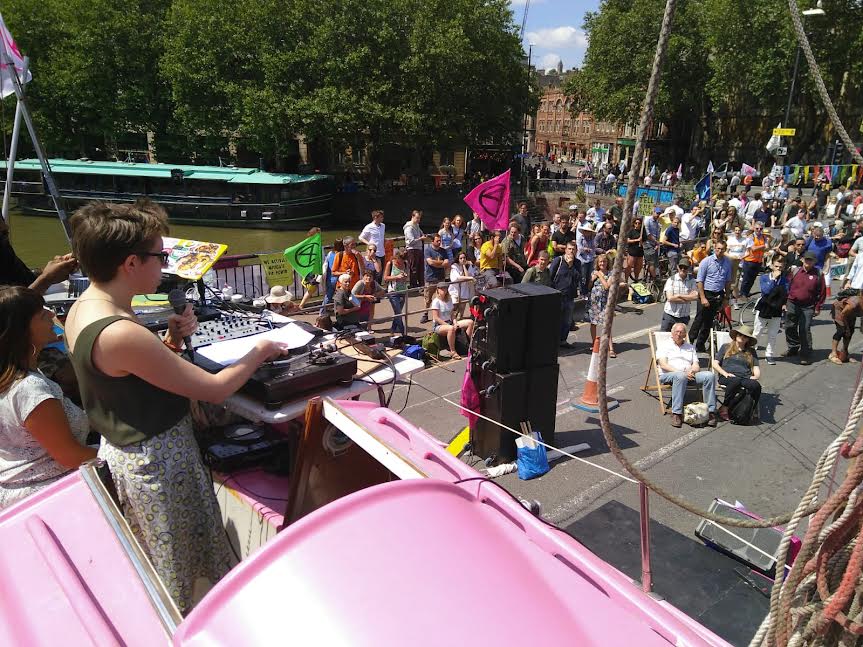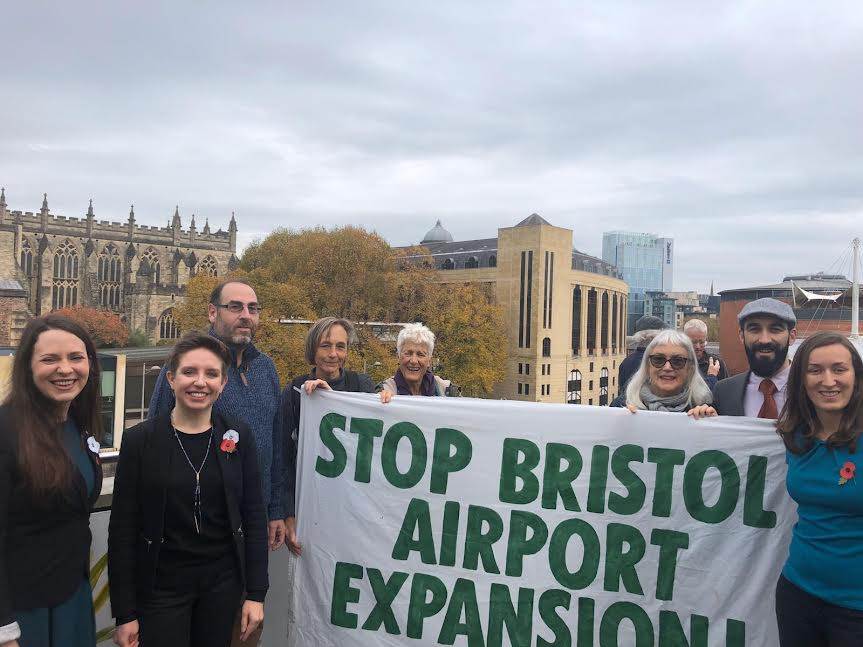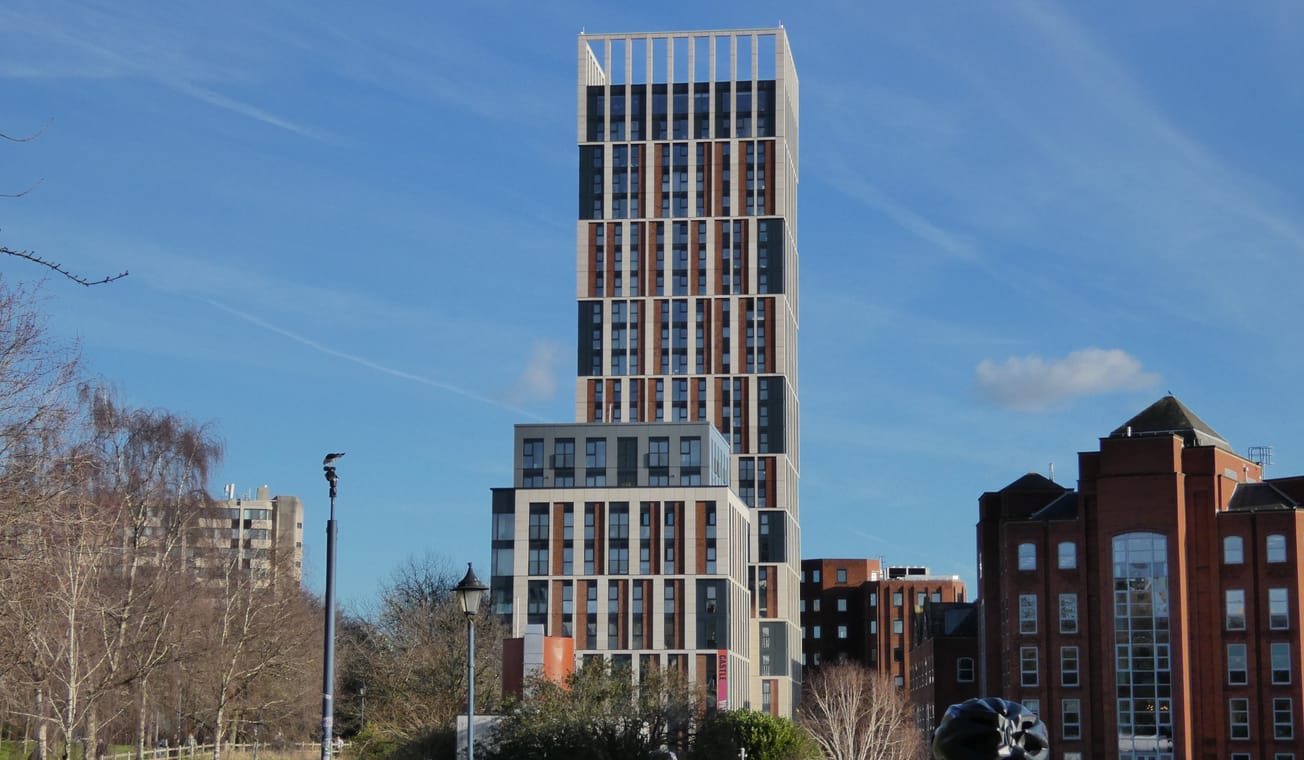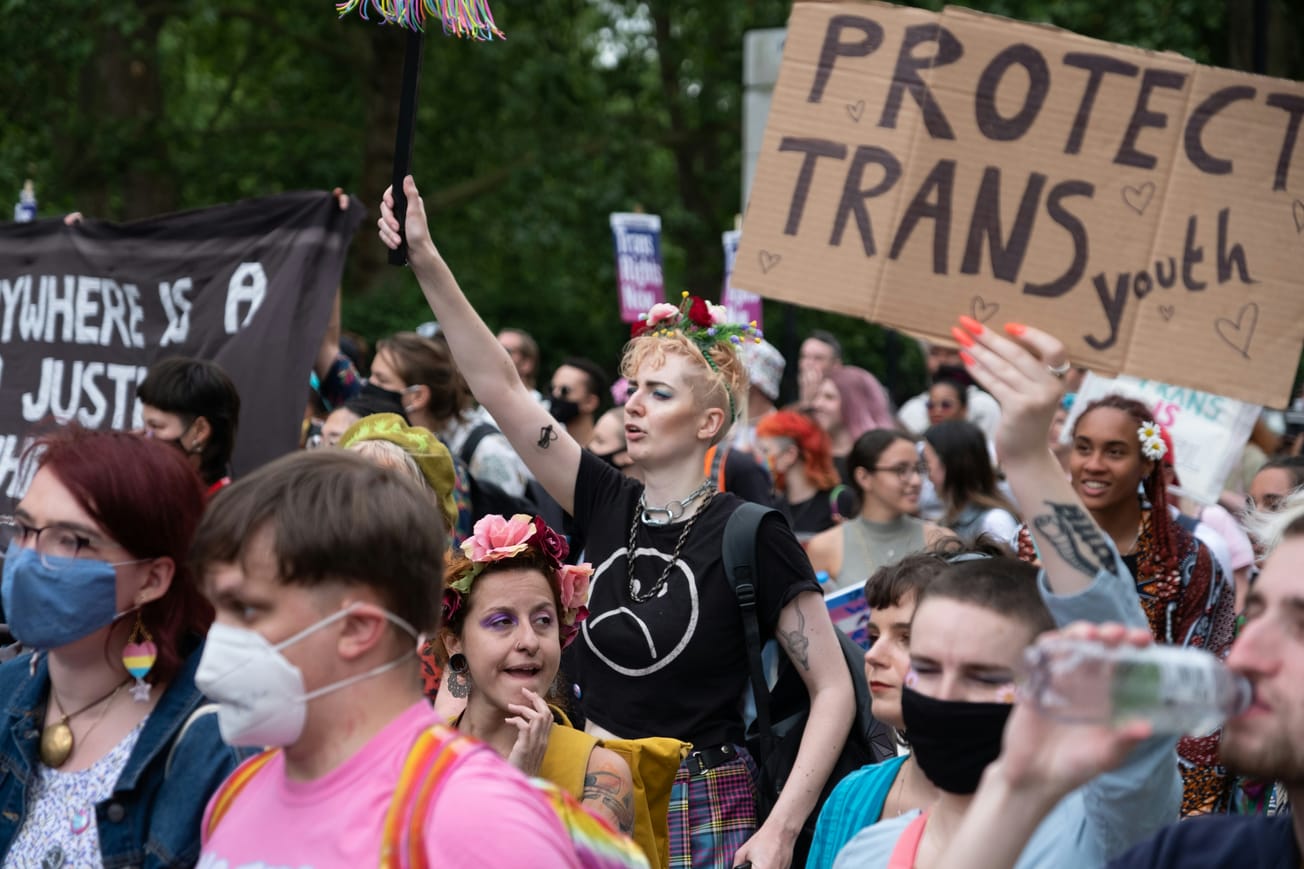By Billy Stockwell, Investigations Editor
Carla Denyer, the new co-leader of the Green Party, explains her vision for the Party going forward with clarity and warmth. She speaks to Epigram on the day that the UK Government's £1trillion net zero plan was released and in the run up to the UN’s 26th Climate Change Conference.
Having proposed the successful motion back in 2018 for Bristol City Council to declare a climate emergency, making it the first city council in Europe to do so, it’s no surprise to learn that Carla is again breaking new ground as the first national party co-leader to be based in Bristol.
.@AdrianRamsay and I are delighted to be selected by members to lead @TheGreenParty!
— Carla Denyer (@carla_denyer) October 1, 2021
We're ready to build the Green Party into a real electoral force, win power and influence in every corner of England and Wales, and transform society to create a brighter future for all. pic.twitter.com/tZSAux8k61
I admit to her that just the day before the announcement of her victory last month, alongside Green Party politician Adrian Ramsay, I actually walked past her being interviewed on Whiteladies Road. ‘You didn’t overhear, did you?’ she jokes. ‘The announcement hadn’t been made then and I had literally just found out the news.’
‘It’s fantastic to have that recognition and I’m really honoured by that. We’re now in this fantastic position where we've never as a party had so much opportunity,’ she says enthusiastically. ‘We're polling high and the latest few polls have had as the third most popular party in the UK.’
Laying out her vision for the Greens going forward, the 36-year-old politician says: ‘We want to get Greens elected all across England and Wales. We're already getting Greens elected in places that until recently people wouldn't have expected … like Burnley which previously had BNP councillors. And in places like rural Norfolk and Suffolk which would have been Tory heartland.’
Voting for the Greens isn’t just a protest vote anymore, Carla believes, but a response to the ‘old, tired political parties’ and their ‘last century outlook on social and environmental issues’. Having managed to more than double the number of Green councillors in Bristol during the local elections earlier this year, Carla believes that ‘if you want Green, you can vote Green, and increasingly you get Green!’
However, Carla, who was recognised last year as one of Bristol’s most influential LGBTQ+ people by Bristol Live, doesn’t think that enough genuine climate action is happening in the city.

Using the analogy of a fire fighter, Carla explains how when you’re in an emergency, you shouldn’t wait until you have a concrete plan before you start taking action. She believes that Bristol City Council, despite having some ‘good plans and strategy documents’, are taking too long to act.
‘It's just not an emergency response!’ she declares. ‘When I proposed my motion in 2018 … that was accompanied with a commitment to get Bristol as a city to go carbon neutral by 2030 ... Yet, the response that we've seen since then has really indicated that the Labour administration who currently run Bristol City Council don't really have a grasp that this is an emergency.’
This is not the first time that Carla has criticised Bristol’s Labour leadership in the city. In September, she questioned why Labour Mayor, Marvin Rees, was not supporting the Climate and Ecological Emergency (CEE) bill in a Full Council Meeting.
‘You’ve declined to support the CEE bill on the basis that it’s a private members bill and not supported by the current government,’ she told the Mayor. ‘… for the thousands of Bristolians who voted for you thinking that you’d provide some pushback to the Tory government, would you like to reconsider your previous refusal to support it?’
He received cross-party backlash for his response, saying that his ‘heart often sinks’ when he sees her name and calling her politics ‘demoralising’.
However, for many Bristolians, particularly students in the city, Carla’s politics will be anything but demoralising. With a passion for environmental and social justice at the core of her mission, Carla has always been incredibly supportive of student campaigning in the city.
For example, in 2018 she celebrated student Robin Boardman's not guilty verdict following a protest where he sprayed washable chalk on Barclays Bank on Queens Road.
The protest was in response to the bank's multi-million pound investments in the fossil fuel industry, despite supporting the 2015 Paris Agreement.

Carla's involvement with local campaigning in Bristol, particularly alongside the city's student community, is of no surprise when you learn that her own interest in environmental issues began at university too.
Whilst studying mechanical engineering at Durham University, she had ‘some kind of epiphany about quite how bad climate change was. … My first thought was: how do I use this engineering degree to best effect?’
Carla worked in the renewable energy sector in Bristol for six years before switching to a career in local politics.
But was that the right choice? ‘I do think that probably was the right thing for me to do at the time, even though I'm not in engineering now,’ she believes. ‘My advice to my younger self or to other people who are in similar situations, wondering how I can do my bit to avert this crisis … is just try and focus on a bit of it where you can have an impact.’
‘It doesn't matter if that's small to start with, because as your skills and your confidence grows, your sphere of influence will grow as well.’
Air pollution linked with increased poor mental health, Bristol study finds
A Fairtrade future for Bristol?
In her final years at Durham, and clearly already beginning to flex her political muscles, Carla became an environmental representative at her college. ‘I used that position to lobby my college to provide recycling facilities, because amazingly in 2007, 2008, they still weren't providing recycling in student bedrooms,’ she says. ‘Which is like, come on guys, recycling isn't new anymore!’
Her advice to anyone wanting to make a difference – whether on University campus or further afield - is to be part of an organised campaign. ‘Lobbying for something and getting a win teaches you so much,’ she says. ‘You can then apply that to other areas of your work or your life.’
‘And it's not just a practice ground either. You can achieve actual change!’
Just before wrapping up our conversation, conscious that for Carla these few weeks might be some of her busiest, I ask her about one of the biggest events on the climate calendar, this year potentially more important than ever: COP26.
Unfortunately, the set-up of UN climate conferences means that opposition politicians do not have a formal seat at the negotiating table. ‘But’, Carla says, eager to reassure. ‘I plan to use my persuasive powers as strongly as possible to really put forward those bold green policies, things that the other parties aren't talking about.
💬 "We don't need to commission another report. We can just get on with it."
— The Green Party (@TheGreenParty) November 2, 2021
🥀 Co-leader @carla_denyer on carbon tax and why she's disappointed with Bristol, like the UK Government, giving good climate talk without real climate action.#COP26 #PoliticsWest pic.twitter.com/ucT55HnRgO
She continues: ‘Things like a carbon tax, which would tax the most polluting industries. It would also provide a social dividend to help fund things like mass insulation of homes [and] improved public transport.
‘Some parties hear the word tax and they run away scared, but I think we need to be honest that this is the kind of solution that we need, and that it's right to tackle those organisations who are causing the most pollution.’
Indeed, Carla has recently referred to findings by Demos stating that 94% of the public would support a carbon tax. ‘94% of Brits don’t agree about anything!’ she told BBC Politics West. ‘So, to have 94% support for that policy really shows that the public are waiting for the government to catch up on these issues.’
Forward-thinking, straight-talking and compassionate, Carla displays all the key qualities for any politician attempting to take on the challenges we face in the 21st century.
‘I think I'm heading up to COP26 myself so potentially I’ll bump into you somewhere on the streets of Glasgow!’ I tell Carla, quietly hoping that my concluding point does comes true.
Thank you, Carla, for giving us here at Epigram your time and providing us with some well-needed hope for the future.
Over 70% of Bristol University students suffer from climate anxiety, new survey finds
University of Bristol switches to eco-friendly search engine Ecosia
Featured Image: Epigram|Canva/Green Party of England and Wales
Do you support the policies that Carla Denyer proposes?









